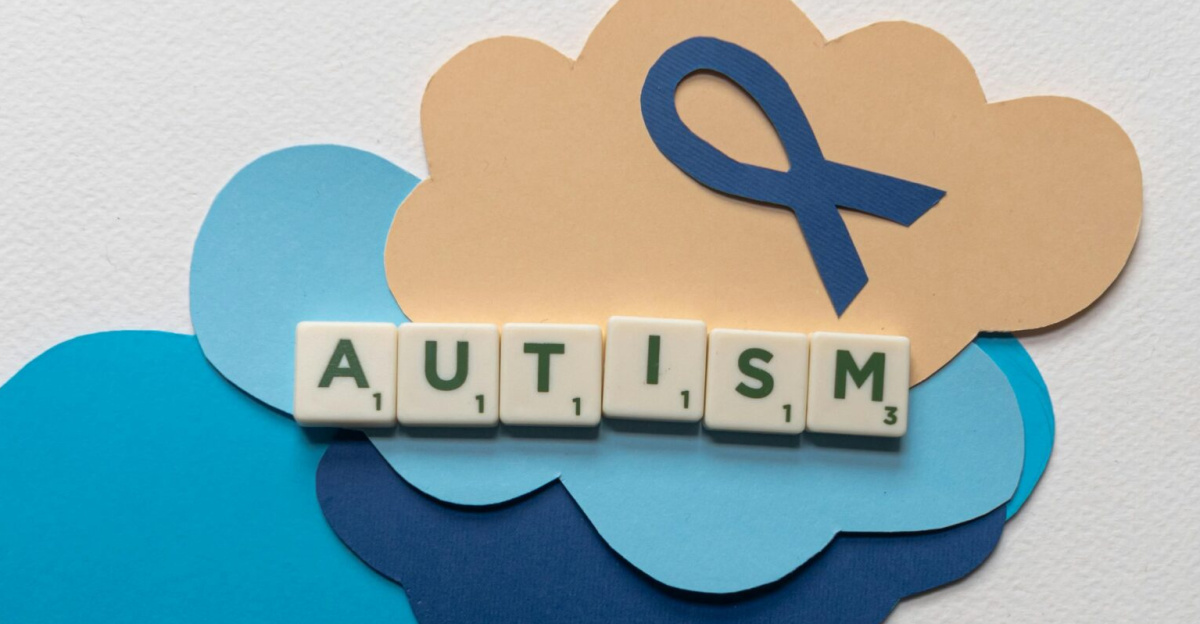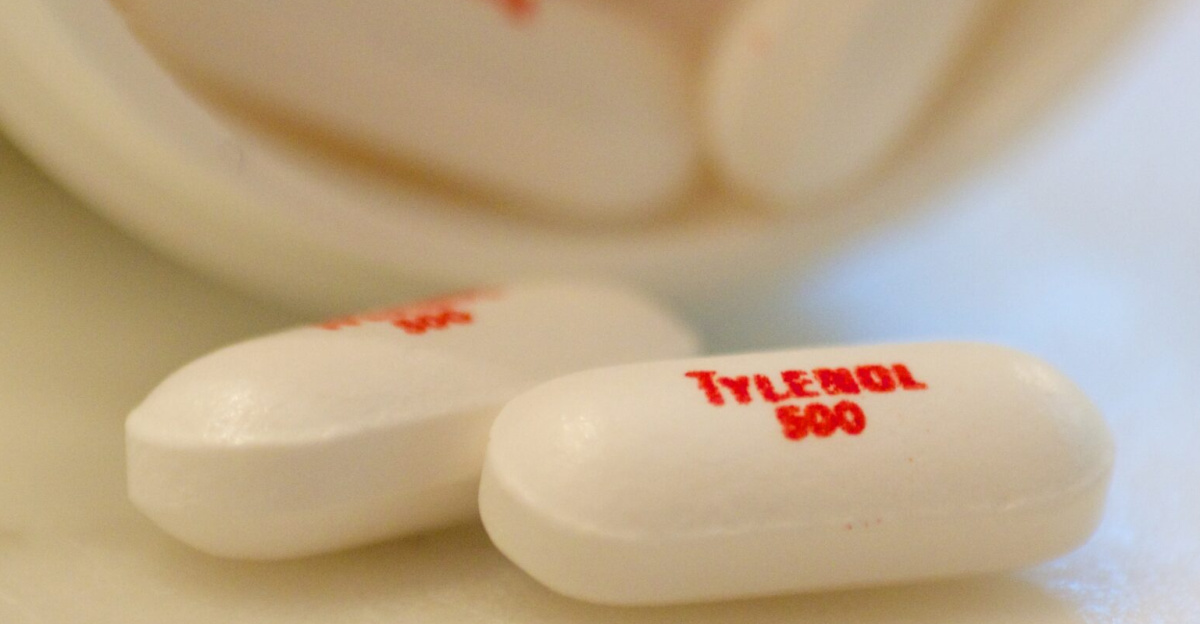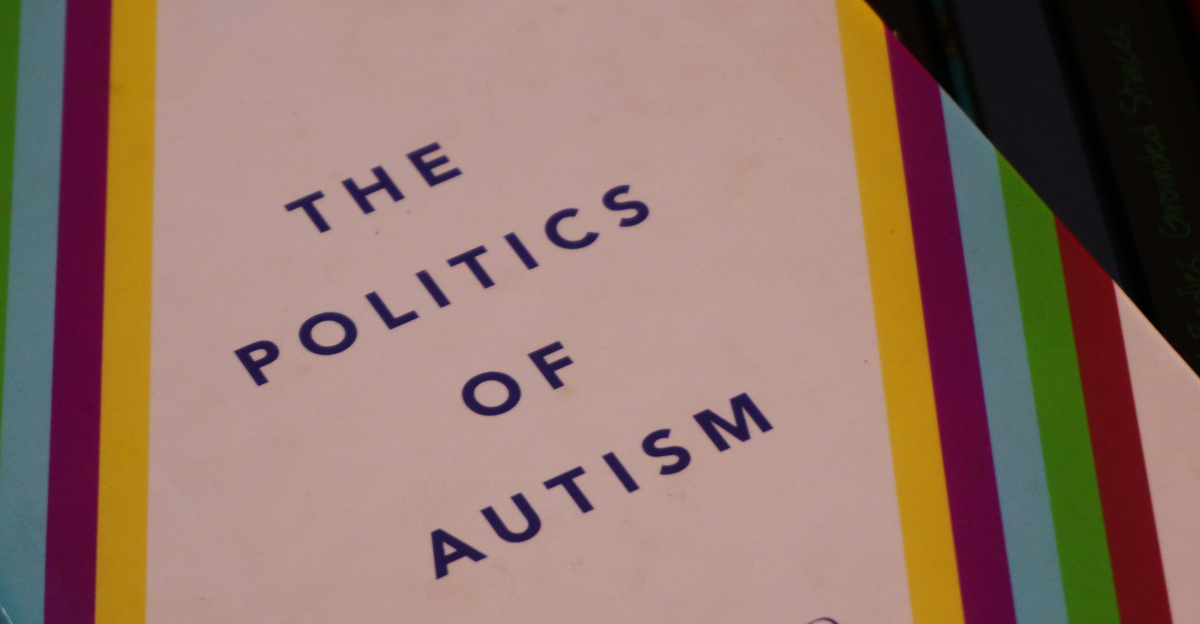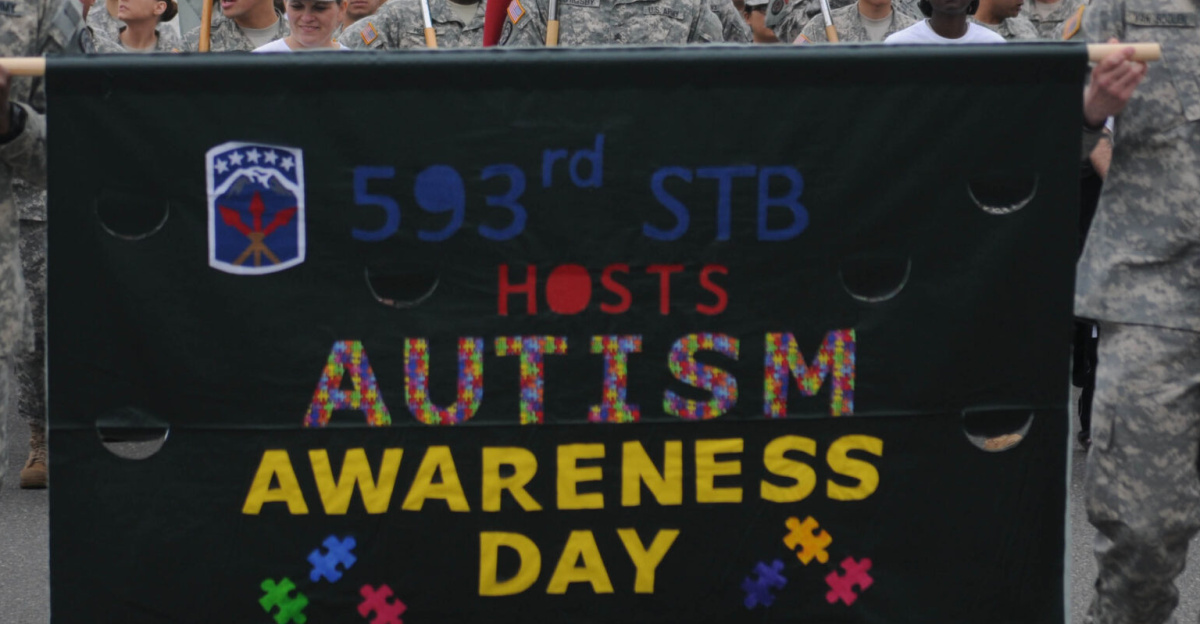
Autism diagnoses among U.S. children have surged alarmingly, now affecting 1 in 31, according to recent figures from the CDC. This stark increase raises pressing questions about the contributors to autism and highlights the need for public health policies that address the concerns of families seeking answers.
Parents like Sarah Johnson, a mother of two from New Jersey, are desperate for clarity. “It’s overwhelming,” she admits. “I just want to understand what’s happening.” The CDC’s figures have sparked urgency among policymakers as families navigate this rising trend and its implications for healthcare and education.
Public Health Alarm

The climbing prevalence of autism has persisted for two decades, leaving physicians and parents in a state of uncertainty regarding possible causes. Experts are engaged in ongoing debates about whether genetics, environmental factors, or a combination of both might be contributing. “We need answers,” insists Dr. Robert Chang, a child psychologist.
Recent CDC data has added a layer of urgency to the discussions, prompting calls for action from policymakers. Increased awareness may have driven part of this rise, but it’s crucial to understand the whole picture. Families are eager for information that will guide them through these challenging waters.
Drug Use in Pregnancy

When it comes to managing pain during pregnancy, many expectant mothers rely heavily on acetaminophen, better known as Tylenol. It stands as the go-to choice, primarily due to the concerns surrounding alternative medications like ibuprofen. “It’s hard to know what’s safe when you’re pregnant,” shares Emily Tran, a mother from California who waded through the advice on pain relief.
With Tylenol being widely marketed and suggested by healthcare providers, significant questions about its widespread use are raised. As autism diagnoses rise, scrutiny of this common medication is increasing, with expectant mothers seeking safer options.
Diagnostic Pressures

The advancements in diagnostic criteria and the aggressive awareness campaigns have led to earlier and broader identification of autism spectrum disorder. This has inadvertently fueled discussions around potential non-genetic contributors. “I never thought our focus would shift like this,” reflects Dr. Linda Patel, a pediatrician.
With many parents feeling overwhelmed as they try to comprehend the implications of early autism detection, the calls for further investigation into environmental and social factors have gained intensity. Amid this evolving landscape, families wonder what these changes mean for their children’s futures.
Historic Announcement

A pivotal moment is on the horizon as the Trump administration, guided by HHS Secretary Robert F. Kennedy Jr., prepares to announce federal guidelines linking prenatal Tylenol use to an increased risk of autism. “This is the first time the government has acknowledged this connection,” emphasizes parent advocate Jeremy Lopez.
The announcement marks a significant shift in the official discourse surrounding autism and medication. With many parents and healthcare professionals watching closely, the implications of this guidance could directly impact treatment protocols and parental choices, igniting further discussions about medication safety during pregnancy.
Regional Unease

The autism rates show significant regional variations in the U.S., with alarming statistics like 1 in 19 in some California communities, compared to 1 in 103 in parts of Texas. As the federal guidance is announced, concerns arise about its potential impact in areas where autism is prevalent.
“Living in a hotspot for autism, this news hits hard,” says local educator Maria Gonzalez. Expectant mothers in these regions may feel disproportionately affected, leading to heightened anxiety and urgency around medication choices. Families are now seeking clarity in the face of growing discrepancies across different states and communities.
A Family’s Dilemma

Emily Chan, a mother from Maryland, shares her story: “I took Tylenol for severe headaches during my pregnancy, believing it was safe.” Following her son’s autism diagnosis at the age of three, doubts began to creep into her mind.
“Did I make the wrong choice?” As more parents question their decisions regarding medication during pregnancy, stories like Emily’s highlight the emotional turmoil that accompanies uncertainty. Families are left grappling with the implications of this new guidance, as they seek reassurance and support from health professionals amidst rising concerns about medication safety.
Medical Backlash

In response to growing concerns, Kenvue, which produces Tylenol, has quickly defended its product. “Independent science shows that acetaminophen does not cause autism,” states their spokesperson. Furthermore, they caution that avoiding this medication could pose risks to pregnant women who need effective treatments for fever.
“As a mother, I can tell you having a fever while pregnant is no joke,” says Amanda Jones, a campaigner for maternal health. The clash between personal experiences and corporate assurances adds complexity to the ongoing debate about Tylenol and its safety in pregnancy, leaving many feeling conflicted.
The Research Divide

The scientific community remains divided on the potential link between prenatal acetaminophen use and neurodevelopmental disorders. Some studies indicate a possible association, while others find insufficient evidence to support such claims. “It’s a challenging landscape,” comments Dr. Christine Ladd-Acosta, a researcher specializing in autism.
The lack of definitive proof highlights the ongoing controversy, leaving parents and health professionals in limbo. As they seek clarity in an environment fraught with uncertainty, the debate continues to evolve, revealing the complexities of understanding autism’s origins. Families are caught in the crossfire of competing narratives around the issue.
Leucovorin Enters

As the autism conversation shifts gears, federal officials are set to spotlight leucovorin, a form of folate, as an emerging therapy for children with autism. “This new direction offers hope to many families,” says Dr. Jennifer Kim, a leading pediatric neurologist.
Those familiar with the White House announcement expect that leucovorin could reshape autism interventions. Families are eager for effective treatments, and this potential breakthrough could change the landscape of autism care. As discussions unfold, parents remain hopeful that innovative solutions may help improve their children’s outcomes in the future.
Medical Warnings

In the face of the evolving narrative surrounding Tylenol and autism, prominent medical organizations, including the American College of Obstetricians and Gynecologists, are urging caution. Their statements emphasize that evidence connecting acetaminophen to autism is still inconclusive. “We need to prioritize maternal health,” asserts Dr. Sonia Patel, an obstetrician.
They recommend that pregnant patients not abruptly discontinue essential medications without consulting healthcare providers. As families weigh their medication choices, the advice from these organizations underscores the importance of informed decisions during pregnancy amid ongoing clinical discussions and emerging findings.
Divided Leaders

Within the government, sharp disagreements have emerged among health officials regarding the recent guidance on Tylenol. Some officials advocate for immediate public warnings based on rising concerns, while others stress the need for restraint, fearing that a premature alarm could cause more harm than good. “It’s a precarious balancing act,” notes health policy analyst Justin Reese.
The divide among leaders mirrors the complexity of the scientific landscape, as families and health professionals grapple with conflicting information. The discussions are emblematic of a broader struggle to align public health policy with ongoing research in a rapidly evolving field.
Science in Flux

The announcement from the White House stems from years of accumulating, albeit contested, research. Systematic reviews of dozens of studies hint at a potential link between prenatal Tylenol use and neurodevelopmental outcomes, but also emphasize the need for careful medication warnings.
“We are in a period of flux,” states Dr. Yvonne Liu, an epidemiologist. Families are left with mixed messages, and as new guidelines are released, they need guidance to navigate the available information while ensuring the health and safety of both mothers and children alike. Understanding the nuances of the research remains paramount.
Doctor Dissent

Despite mounting concerns, Dr. Christine Ladd-Acosta candidly addresses the inconsistencies in evidence regarding Tylenol’s impact on autism. “The lack of clear cause-and-effect makes it difficult to establish firm conclusions,” she explains. Her warning about the potential risks of untreated fever during pregnancy underscores the need for nuanced discussions.
“As both a doctor and a mother, I see the complexities,” she adds. As the healthcare community grapples with varying opinions, families are looking for clear guidance, striving for their well-being while navigating the murky waters of health advice surrounding pregnancy management.
Open Questions

As federal guidance approaches public release, health professionals and parents are asked about its implications. Will it signify a critical turning point in autism awareness, or is it merely the opening act of a much deeper, divisive debate? “We need clarity to move forward,” asserts parent advocate Lisa Bennett.
The uncertainty surrounding the relationship between Tylenol use and autism continues to loom large for countless families, who grapple with both anxiety and hope as they await further developments and new insights into this impactful subject.
Political Overtones

The ongoing discourse surrounding the Tylenol-autism link has emerged against polarizing politics. Leaders are divided; some herald the guidance as “historic progress,” while critics express concerns that it may lend credence to fringe theories and undermine trust in established medical science.
“This isn’t just science, it’s about public perception,” remarks political analyst Derek Green. As stakeholders from various sectors engage in this multifaceted debate, families are caught in the middle, confronted with the potential consequences of the shifting narrative while seeking reassurance regarding their children’s health.
International Ripples

The debate over Tylenol’s safety during pregnancy is resonating internationally, as regulators in Europe and Asia monitor developments closely. “While we are observing the U.S. guidance, we haven’t adjusted our recommendations,” says Marianne Duval, a regulatory official in France. They cite a pressing need for more robust studies before altering health advice.
For families across the globe, this response highlights the intricate web of regulatory considerations that shape healthcare policies. As perspectives shift worldwide, the urgency for comprehensive research and cohesive guidelines remains paramount in the quest for clarity.
Legal Crosshairs

Legal scrutiny surrounding acetaminophen takes center stage as a recent U.S. federal judge ruled that plaintiffs lacked admissible evidence to pursue lawsuits against acetaminophen manufacturers for claims linking the drug to autism or ADHD. “This ruling underscores the unsettled state of the science,” states legal analyst Rachel Cohen.
With the White House’s announcement generating new interest and concern, this legal backdrop could revive discussions and demands for accountability. Families, navigating the intersections of health and law, may find this turning point bearing implications for ongoing debates surrounding drug safety and rights.
Community Perspectives

In many communities, the dialogue around autism and medication is personal. “I’ve seen how much this affects families,” shares community leader Malik Davis. Local support groups have sprung up as parents seek connection and information.
From discussing medication alternatives to sharing experiences, these grassroots movements highlight the critical need for collaboration and understanding among parents, healthcare professionals, and researchers. As information continues to evolve, fostering dialogue within these communities helps bridge the gap between clinical research and the lived experiences of families affected by autism.
Path Forward

As the conversation surrounding Tylenol and autism unfolds, it’s clear that the path forward requires collaboration, ongoing research, and open dialogue. Families must feel supported in their choices, armed with accurate information that reflects the latest evidence. “I just want what’s best for my child,” emphasizes Daniel Raymond, a concerned father.
Moving ahead, healthcare providers, researchers, and families must work together to navigate the complexities of autism, aiming to find solutions that will ultimately enhance the lives of affected children and their families. The journey continues, with hope and determination guiding future efforts.